
Ndola: The Industrial Heartbeat with a Touch of Serenity
Nestled within the Copperbelt Province, Ndola is Zambia's third-largest city and a significant industrial hub. Despite its industrial prowess, Ndola offers a unique blend of urban energy and serene landscapes, making it an intriguing destination for tourists seeking a balanced experience. Ndola boasts a rich history that dates back to the early 20th century, prominently reflected in its colonial architecture and historical landmarks. One of the must-visit spots is the Dag Hammarskjöld Memorial Site, commemorating the former UN Secretary-General who tragically died in a plane crash near Ndola in 1961. This serene site is not only a place of historical significance but also offers a tranquil environment for reflection. For nature lovers, Ndola is home to the beautiful Lake Chilengwa and Ndola Golf Club, which provide picturesque views and opportunities for outdoor activities. The city's markets, such as the vibrant Kapalala Market, offer a taste of local life and the chance to buy unique Zambian crafts and fresh produce. The Ndola Botanic Garden is another gem, where visitors can stroll through lush greenery and enjoy the peaceful environment. Food enthusiasts will delight in Ndola’s culinary scene, which features a mix of traditional Zambian dishes and international cuisine. Restaurants and cafes scattered across the city provide a chance to savor local flavors while enjoying the warm Zambian hospitality. Additionally, Ndola's nightlife, though understated, offers various entertainment options, from local bars to lively music venues. Ndola is also a gateway to exploring other attractions in the Copperbelt region, including the Chimfunshi Wildlife Orphanage, which is home to rescued chimpanzees. Whether you are interested in history, nature, or local culture, Ndola promises a memorable experience filled with discovery and relaxation.
Local tips in Ndola
- Visit the Dag Hammarskjöld Memorial Site early in the morning for a quiet and reflective experience.
- Bring cash when visiting local markets, as many vendors do not accept credit cards.
- Dress modestly when visiting religious sites and rural areas to respect local customs.
- Try local dishes such as nshima and chibwabwa at traditional Zambian restaurants for an authentic culinary experience.
- Rent a car or hire a local guide if you plan to explore beyond Ndola, as public transport options can be limited.
- Check local weather conditions before planning outdoor activities, as the rainy season can affect travel plans.
Neighbourhoods in Ndola
Ndola: The Industrial Heartbeat with a Touch of Serenity
Nestled within the Copperbelt Province, Ndola is Zambia's third-largest city and a significant industrial hub. Despite its industrial prowess, Ndola offers a unique blend of urban energy and serene landscapes, making it an intriguing destination for tourists seeking a balanced experience. Ndola boasts a rich history that dates back to the early 20th century, prominently reflected in its colonial architecture and historical landmarks. One of the must-visit spots is the Dag Hammarskjöld Memorial Site, commemorating the former UN Secretary-General who tragically died in a plane crash near Ndola in 1961. This serene site is not only a place of historical significance but also offers a tranquil environment for reflection. For nature lovers, Ndola is home to the beautiful Lake Chilengwa and Ndola Golf Club, which provide picturesque views and opportunities for outdoor activities. The city's markets, such as the vibrant Kapalala Market, offer a taste of local life and the chance to buy unique Zambian crafts and fresh produce. The Ndola Botanic Garden is another gem, where visitors can stroll through lush greenery and enjoy the peaceful environment. Food enthusiasts will delight in Ndola’s culinary scene, which features a mix of traditional Zambian dishes and international cuisine. Restaurants and cafes scattered across the city provide a chance to savor local flavors while enjoying the warm Zambian hospitality. Additionally, Ndola's nightlife, though understated, offers various entertainment options, from local bars to lively music venues. Ndola is also a gateway to exploring other attractions in the Copperbelt region, including the Chimfunshi Wildlife Orphanage, which is home to rescued chimpanzees. Whether you are interested in history, nature, or local culture, Ndola promises a memorable experience filled with discovery and relaxation.
When is the best time to go to Ndola?
Iconic landmarks you can’t miss
Jacaranda Mall
Discover the lively Jacaranda Mall in Ndola, a shopping haven featuring local crafts, international brands, diverse dining, and entertainment options.
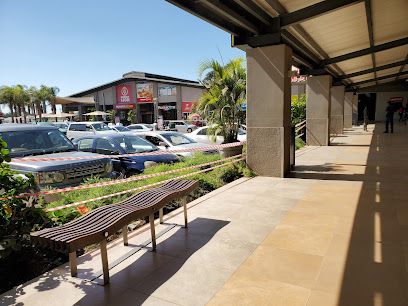
Protea Hotel Ndola
Discover comfort and modern amenities at Protea Hotel Ndola, your ideal base for exploring the beauty of Zambia's Copperbelt region.

Nando's Ndola
Discover Nando's Ndola, where flame-grilled peri-peri chicken and a vibrant atmosphere create an unforgettable dining experience in the heart of Zambia.
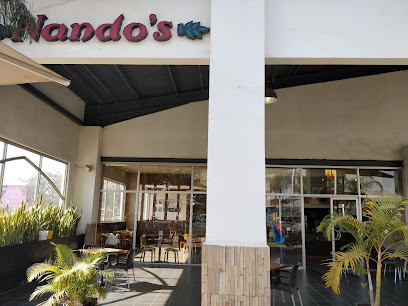
The Urban Hotel Ndola
Experience the perfect blend of comfort and modern amenities at The Urban Hotel Ndola, your ideal retreat in Zambia's Copperbelt region.

Bo'Jangles Pub Grill & Pizzeria
Experience the vibrant flavors of Zambia at Bo'Jangles Pub Grill & Pizzeria, where delicious dishes and a lively atmosphere await in Ndola's Kafubu Mall.
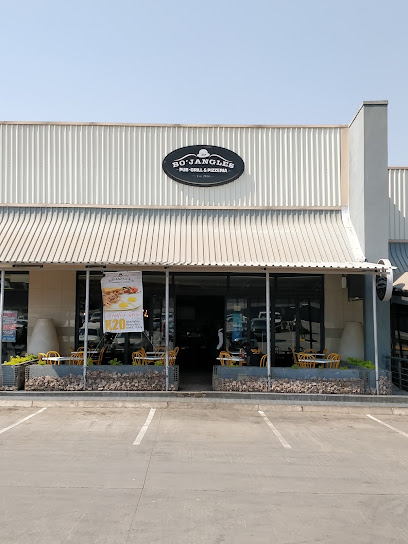
Copper Canyon Spur
Discover the ultimate steak dining experience at Copper Canyon Spur, a family-friendly restaurant in Ndola, combining African flavors with a vibrant atmosphere.
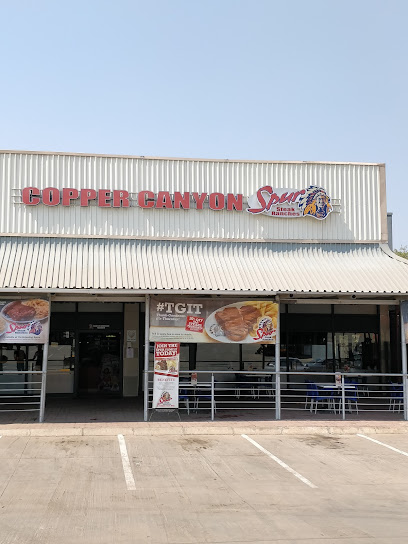
starscape Hotel & restaurant
Experience comfort and local flavors at Starscape Hotel & Restaurant in Ndola, where every stay is enhanced by a starlit atmosphere.
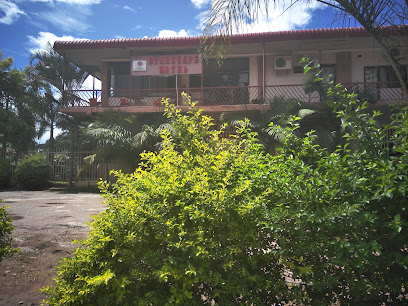
Leeja Palace Restaurant & Bar
Savor the authentic taste of India at Leeja Palace Restaurant & Bar in Ndola, where every dish is a culinary delight.
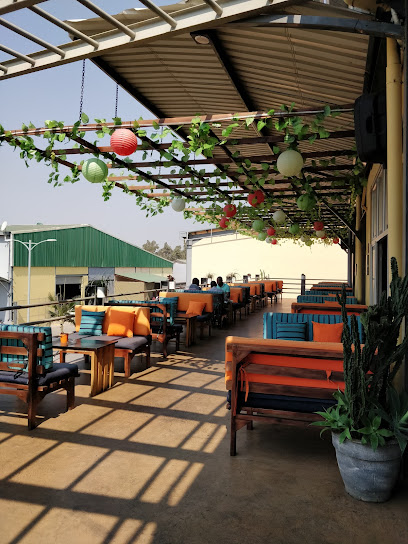
Zanji Lodge
Discover comfort and convenience at Zanji Lodge in Ndola, a perfect base for exploring Zambia's vibrant culture and local attractions.

Angelina's Bistro, Bar & Pizzeria
Discover the vibrant culinary scene at Angelina's Bistro, Bar & Pizzeria, where delicious bistro fare meets a lively atmosphere in Ndola.
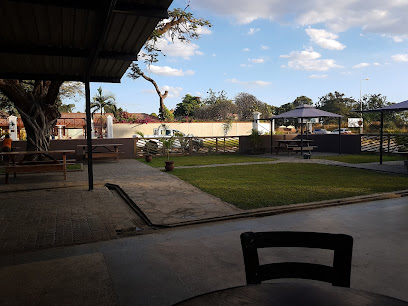
Njele Country Park
Discover the serenity of Njele Country Park in Ndola, Zambia, a perfect blend of nature, wildlife, and tranquility for an unforgettable experience.

Spree Guest House
Discover comfort and charm at Spree Guest House in Ndola, the perfect base for your Zambian adventure with cozy accommodations and warm hospitality.

Mint Café Ndola
Experience the flavors of Zambia at Mint Café Ndola, where every meal is a celebration of local cuisine and warm hospitality.
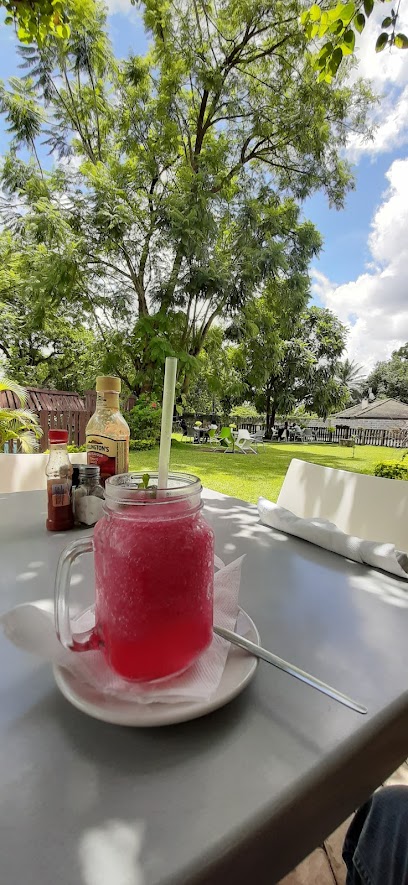
Mukuba Hotel
Discover the perfect blend of comfort and local charm at Mukuba Hotel in Ndola, an ideal base for your Copperbelt adventures.

Nawab's Kitchen
Discover the flavors of India at Nawab's Kitchen, Ndola's premier destination for authentic Indian cuisine in a welcoming atmosphere.
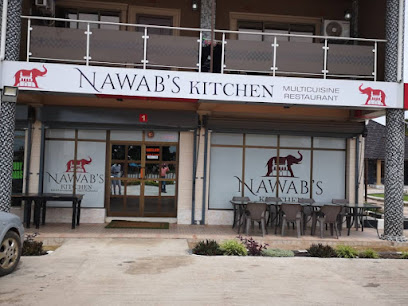
Unmissable attractions to see
Copperbelt Museum
Explore Zambia's mining heritage at the Copperbelt Museum, a captivating journey through history and culture in Ndola.
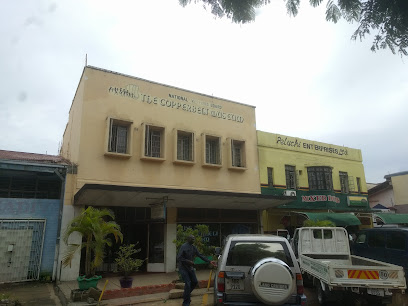
Minsundu Recreational Park
Discover the tranquil beauty of Minsundu Recreational Park in Ndola, a perfect blend of nature and recreation for every traveler.
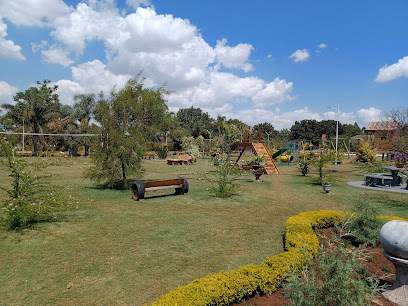
Dag Hammarskjöld Crash Site Memorial
Explore the Dag Hammarskjöld Crash Site Memorial in Ndola, a poignant historical site dedicated to peace and international diplomacy.
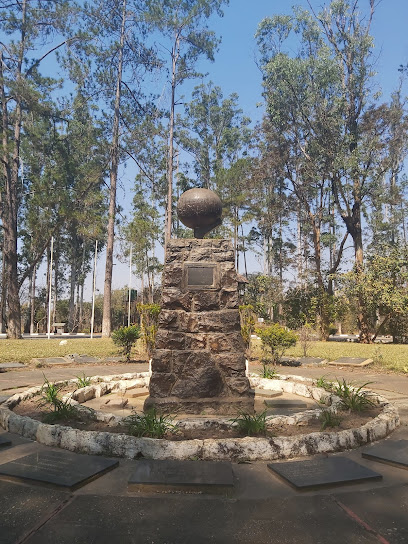
The Oak Garden
Discover tranquility at The Oak Garden in Ndola, a beautiful retreat filled with lush greenery and vibrant blooms, perfect for relaxation and exploration.
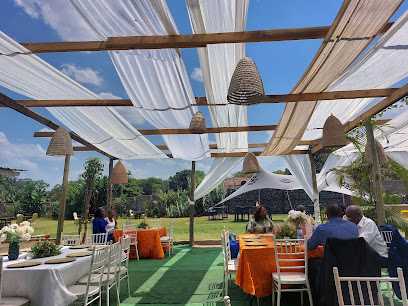
Kalewa swimming pool
Discover the tranquility of Kalewa Swimming Pool in Ndola, where relaxation meets nature in a beautiful garden setting.
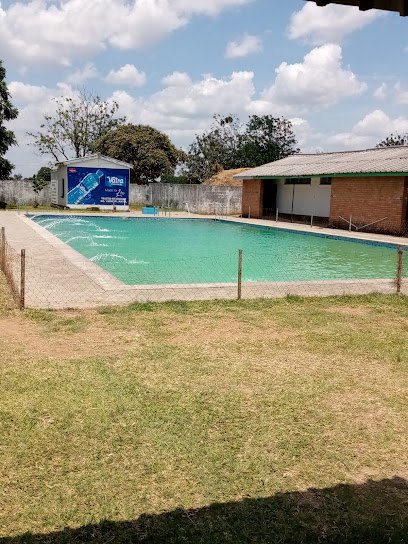
Bethsaida
Explore the tranquil beauty of Bethsaida Park in Ndola, Zambia—your perfect getaway to nature, relaxation, and local culture.
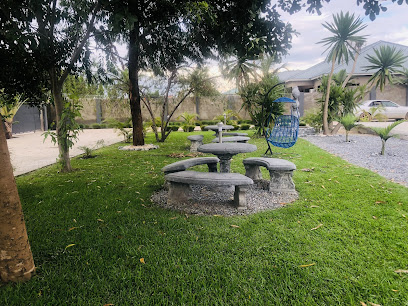
FarmGate
Experience the serene beauty and vibrant atmosphere of FarmGate Park, a lush oasis in Ndola perfect for relaxation and exploration.
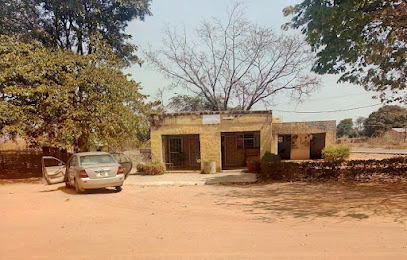
Ishiku Sunken Lake
Explore the serene beauty of Ishiku Sunken Lake, a hidden gem in Ndola, Zambia, perfect for nature lovers and adventure seekers alike.

HILDA DECO GARDENS
Explore the serene beauty of Hilda Deco Gardens in Ndola, where vibrant flora and tranquil pathways create the perfect escape into nature.
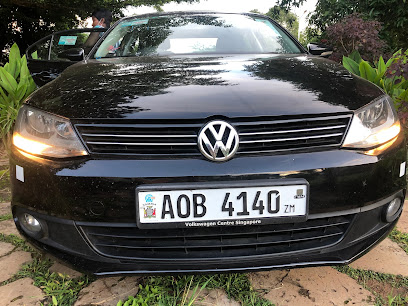
Slave tree
Explore the Slave Tree in Ndola, a poignant symbol of resilience and history that honors the legacy of those who endured slavery in Zambia.

Megatron's Encase
Experience tranquility and natural beauty at Megatron's Encase, a stunning garden escape in Ndola, Zambia, perfect for relaxation and exploration.
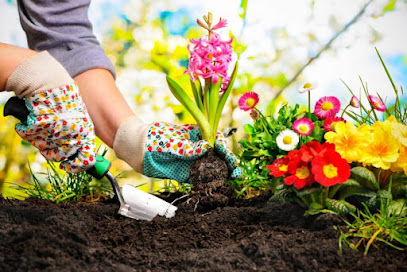
Waterfront Events Centre
Experience the beauty and culture of Ndola at the Waterfront Events Centre, a perfect park for relaxation, events, and local gatherings.
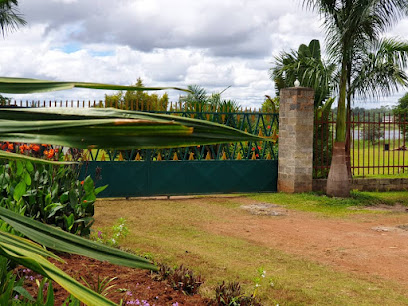
Virgin Mary Grotto
Experience the serene beauty and spiritual ambiance of Virgin Mary Grotto in Ndola, a perfect retreat for relaxation and reflection amidst nature.
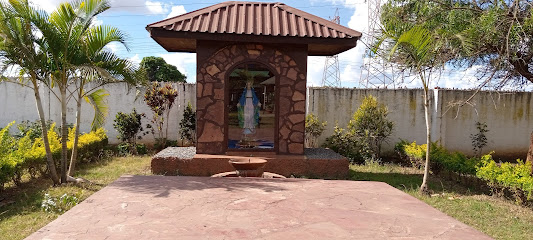
Muzi
Experience the tranquility of Muzi Garden in Ndola, a serene oasis offering lush landscapes and a peaceful retreat from city life.

Eden farm
Discover Eden Farm in Ndola, a beautiful garden oasis perfect for relaxation, family gatherings, and nature appreciation.

Essential places to dine
Nando's Ndola
Experience the vibrant flavors of South Africa at Nando's Ndola with delicious peri-peri chicken and family-friendly dining.
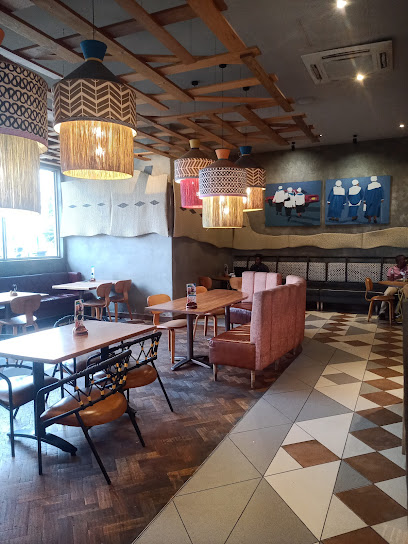
Bo'Jangles Pub Grill & Pizzeria
Experience culinary delights at Bo'Jangles Pub Grill & Pizzeria in Ndola's Kafubu Mall – where flavor meets fun!
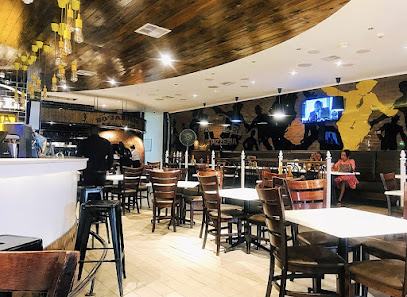
Copper Canyon Spur
Discover delightful African flavors at Copper Canyon Spur - where every meal is an unforgettable culinary journey.
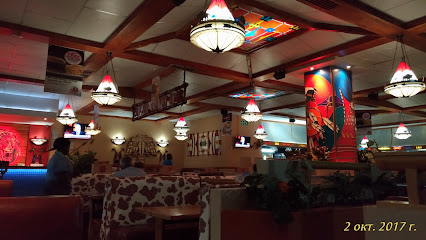
starscape Hotel & restaurant
Discover Ndola's charm at Starscape Hotel & Restaurant – where comfort meets exquisite dining in a friendly atmosphere.
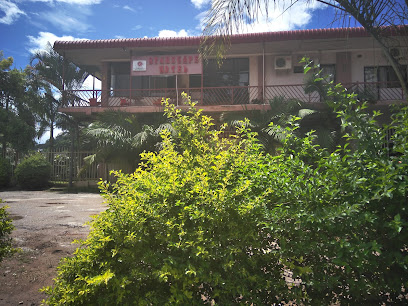
Leeja Palace Restaurant & Bar
Discover authentic Indian flavors at Leeja Palace Restaurant & Bar in Ndola – where every meal is a celebration of culinary art.
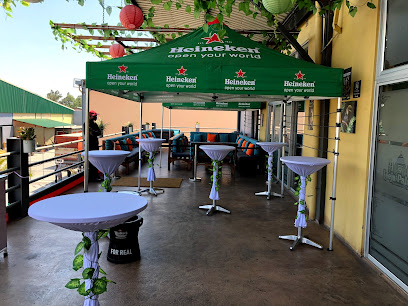
Angelina's Bistro, Bar & Pizzeria
Savor exquisite bistro cuisine and delightful pizzas in the heart of Ndola at Angelina's Bistro, Bar & Pizzeria.
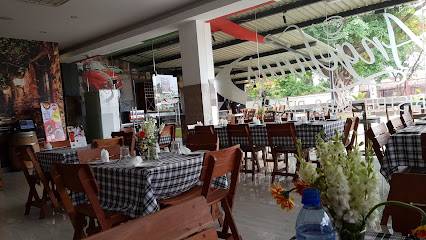
Mint Café Ndola
Experience delicious breakfasts and brunches at Mint Café Ndola - your go-to spot for tasty meals in a cozy setting.
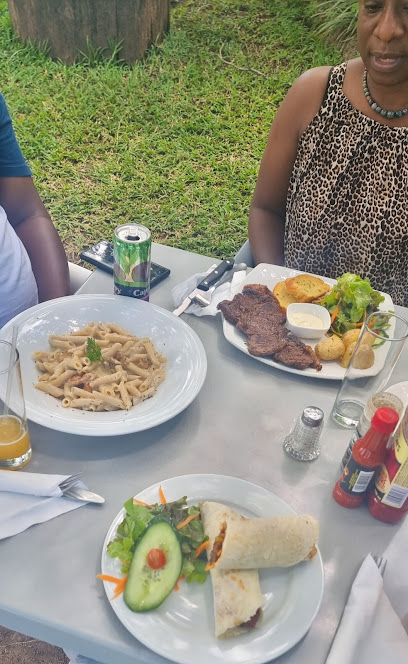
Nawab's Kitchen
Discover authentic Indian flavors at Nawab's Kitchen in Ndola – where every meal tells a story.
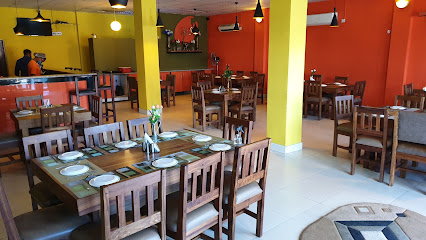
After Ten
Experience authentic Zambian flavors at After Ten in Ndola – where culinary delights meet warm hospitality.
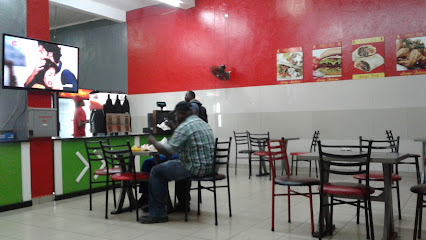
Hungry Lion Kafubu
Discover delicious fried chicken and local flavors at Hungry Lion Kafubu in Ndola's vibrant mall setting.
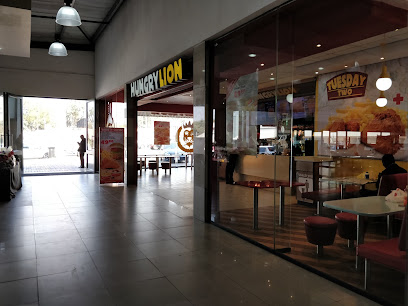
Fourways Pub & Grill (4Ways Pub & Grill
Experience authentic Zambian flavors at Fourways Pub & Grill in Ndola—where vibrant atmosphere meets delicious cuisine.
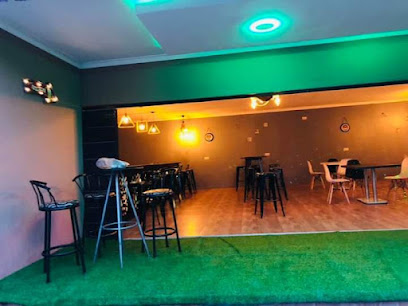
Deja vu restaurant
Experience the best of Zambian hospitality at Deja Vu Restaurant in Ndola - where local flavors meet culinary excellence.
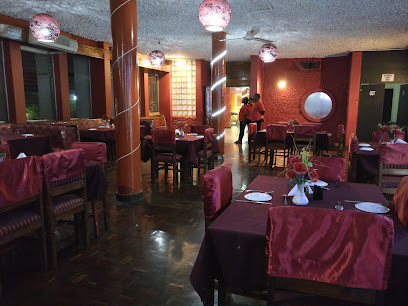
Leonidas Restaurant & Lounge
Discover the rich flavors of Zambia at Leonidas Restaurant & Lounge in Ndola – where every meal is a celebration of local cuisine.
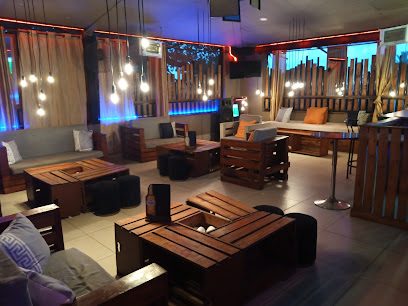
Sweet Bite
Discover Sweet Bite in Ndola - where local flavors meet international cuisine in a warm and inviting atmosphere.
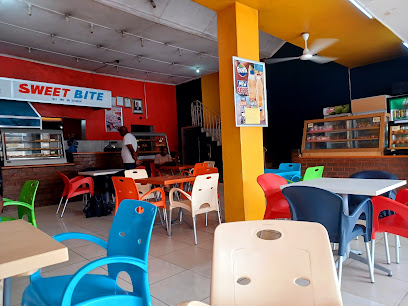
The Chief Steak House
Indulge in mouthwatering steaks at The Chief Steak House - where Zambian flavors meet culinary excellence in Ndola.
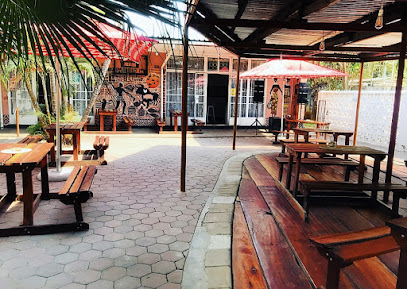
Markets, malls and hidden boutiques
Kafubu Shopping Mall
Explore Kafubu Shopping Mall in Ndola for an unforgettable shopping experience with local flavor, dining options, and entertainment for all ages.
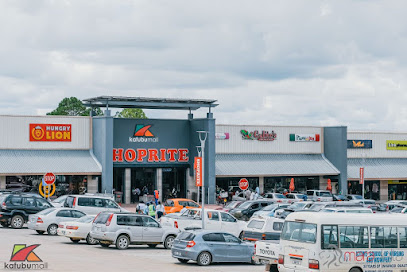
Shoprite Kafubu Mall
Discover an authentic shopping experience at Shoprite Kafubu Mall, a vibrant supermarket in Ndola offering a variety of local and international products.
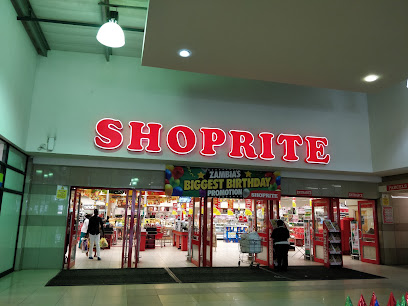
Pick n Pay Kansenshi
Explore a premier supermarket in Ndola, Zambia, for all your grocery needs and discover local and international delights.
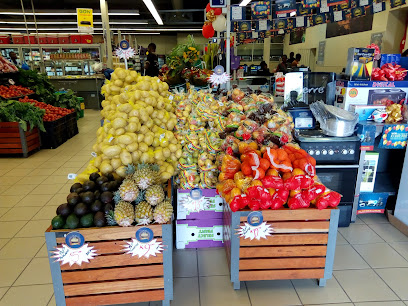
Z-MART Shopping Mall
Experience the buzz of Z-MART Shopping Mall in Ndola, where shopping meets local culture and dining delights await.
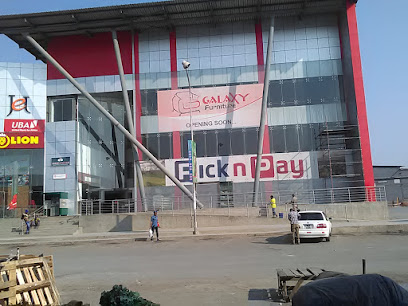
Jacaranda Mall
Discover the dynamic shopping experience at Jacaranda Mall, Ndola's premier destination for retail, dining, and entertainment.
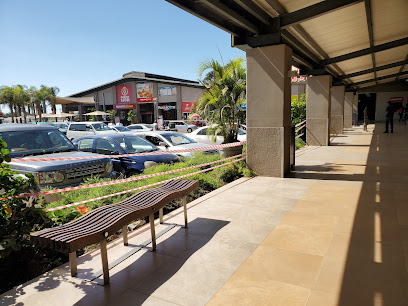
Shoprite Ndola
Discover a world of groceries and local delights at Shoprite Ndola, Zambia's favorite supermarket destination for travelers and locals alike.
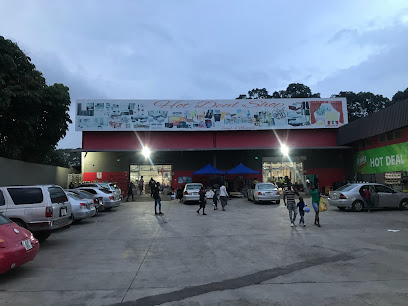
Dola Hill Wholesale City
Experience the vibrant shopping and cultural hub of Dola Hill Wholesale City in Ndola, where local flavor meets modern retail.
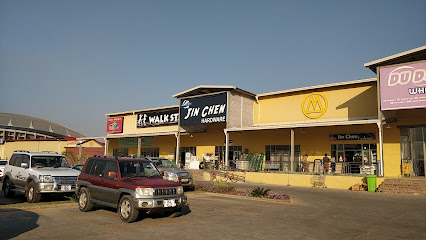
Z-Mart Kansenji Mall
Discover Z-Mart Kansenji Mall in Ndola, a vibrant shopping haven offering diverse retail, delicious dining, and lively entertainment options for every visitor.
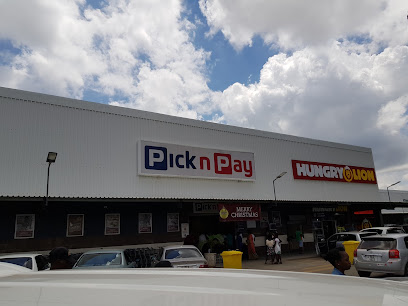
Ndola Square Mall
Experience the heart of Ndola at Ndola Square Mall - a shopping paradise with diverse stores, dining, and entertainment options.
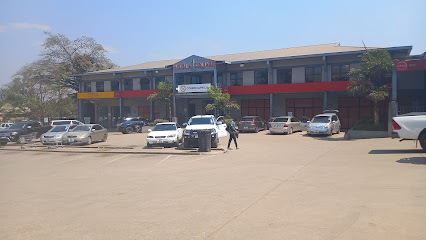
Shoprite Jacaranda Mall
Explore a wide range of products at Shoprite Jacaranda Mall, the premier supermarket in Ndola, Zambia, perfect for tourists and locals alike.
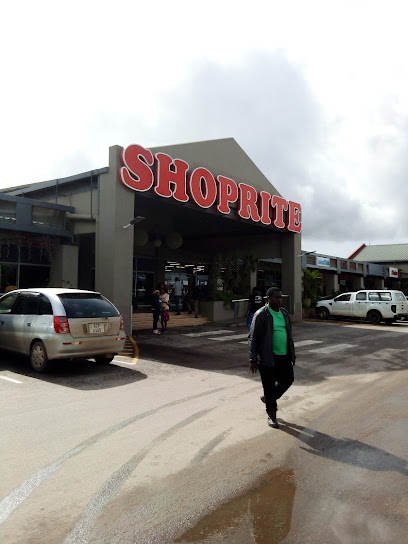
Katies Zambia
Discover unique gifts and local treasures at Katies Zambia, your go-to boutique in Ndola for authentic Zambian souvenirs.
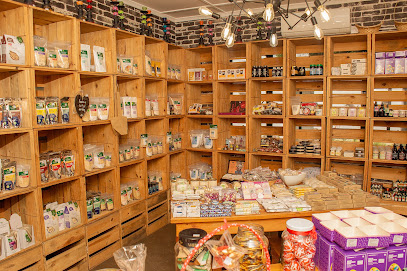
Z-MART Stores · Ndola
Discover the vibrant shopping experience at Z-MART Stores in Ndola, where modern design meets a diverse selection of quality home goods.
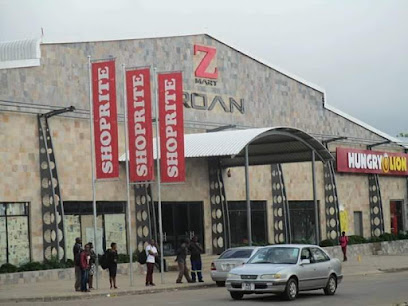
Jacaranda Shopping Complex
Discover shopping, dining, and entertainment at the Jacaranda Shopping Complex, a vibrant hub in Ndola, Zambia, perfect for tourists and locals alike.
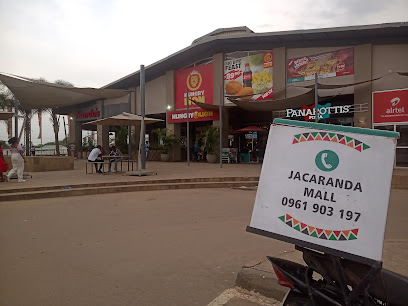
Yalelo Ndola - Downtown 1 Store
Discover a world of vibrant aquatic life at Yalelo Ndola, your premier tropical fish store in the heart of Ndola, Zambia.
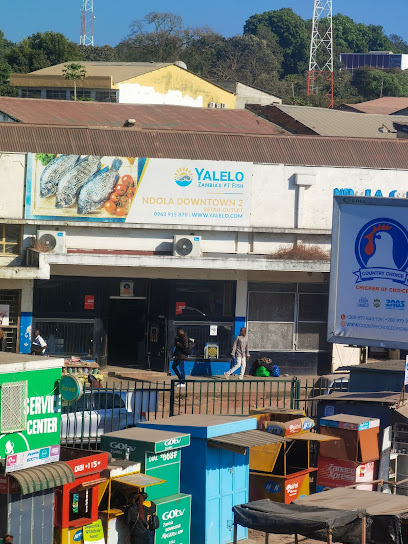
PEP Zambia Ndola Kafubu Mall
Discover affordable fashion for the entire family at PEP Zambia Ndola in Kafubu Mall, where style meets budget-friendly shopping.

Essential bars & hidden hideouts
Kwacha Blue Mint
Experience the lively nightlife at Kwacha Blue Mint, a top bar in Ndola with a vibrant atmosphere and diverse drink selection.
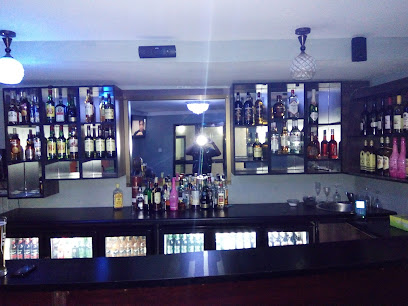
Five Star Pub
Discover the vibrant nightlife at Five Star Pub, a top bar in Ndola with a lively atmosphere and diverse drink selection.
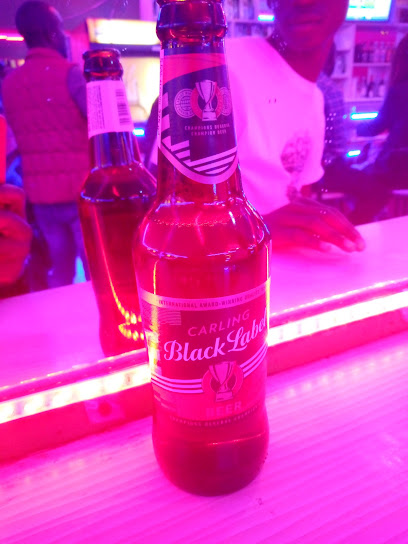
Volo Bar
Discover the lively ambiance of Volo Bar in Ndola, where locals and tourists come together for unforgettable nights filled with drinks, music, and laughter.
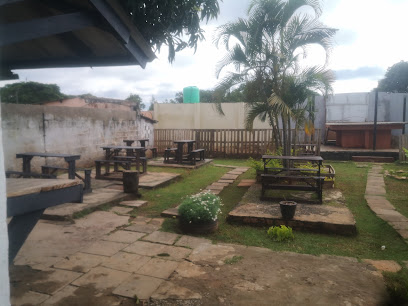
Longhorn Bar
Discover the lively spirit of Ndola at Longhorn Bar, where refreshing drinks and a friendly atmosphere await every traveler.
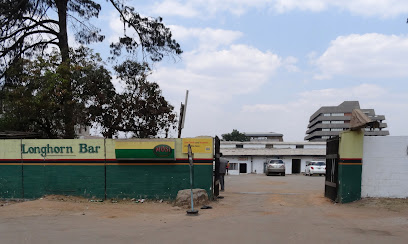
Dag H Pub
Experience the vibrant energy of Dag H Pub, Ndola's premier sports bar, where great food, drinks, and live sports come together.
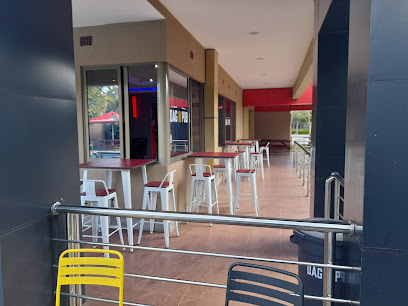
Eddie's pub
Experience vibrant nightlife and local culture at Eddie's Pub in Ndola, Zambia, where friendly faces and great drinks await.
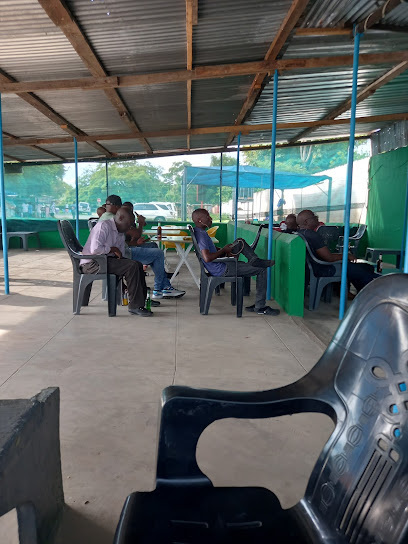
Thrills Pub And Grill
Immerse yourself in Ndola's nightlife at Thrills Pub And Grill, where great food, drinks, and an energetic atmosphere await.
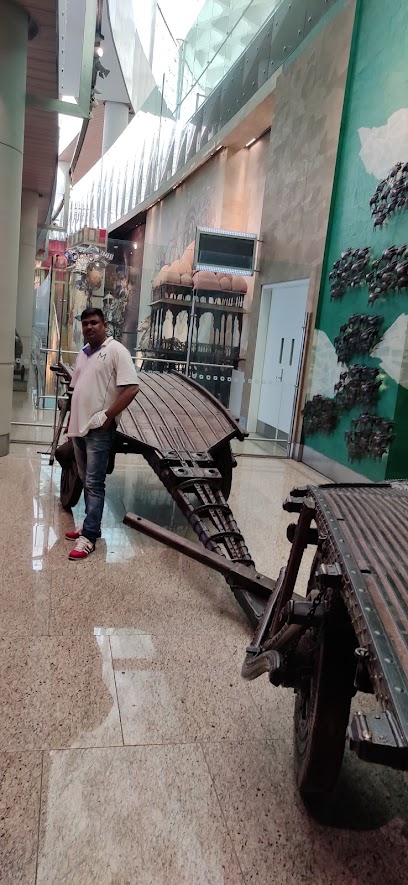
Blue sting pub and grill
Experience the vibrant nightlife at Blue Sting Pub and Grill, Ndola's go-to bar for drinks, live music, and local flavor.

Everblazing Pub
Discover the local charm and vibrant nightlife at Everblazing Pub in Ndola, where friendly faces and refreshing drinks await.

Muchis
Discover Muchis, a vibrant bar in Ndola serving cool drinks and delicious braai'd fish in a lively atmosphere.
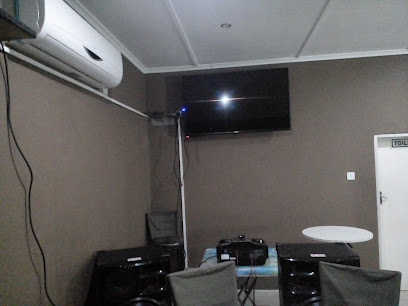
Ndondo's Pub
Discover the heart of Ndola at Ndondo's Pub, where local culture meets relaxation and good drinks in a vibrant atmosphere.
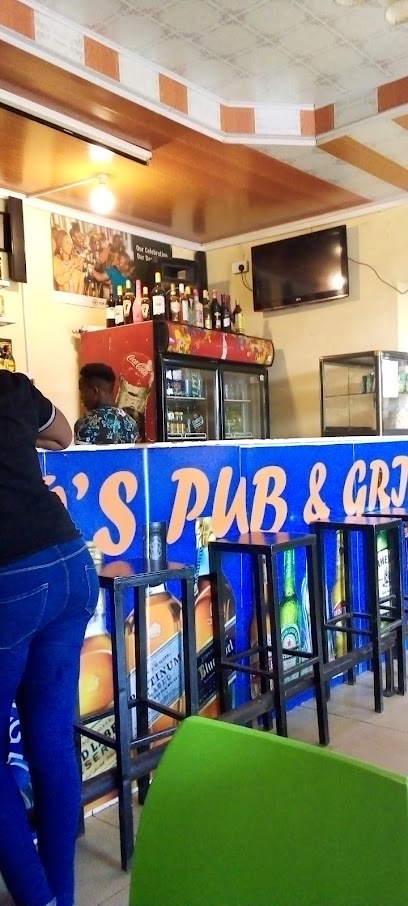
RJ's Executive Pub
Experience the vibrant nightlife of Ndola at RJ's Executive Pub, where locals and tourists gather for great drinks and unforgettable moments.
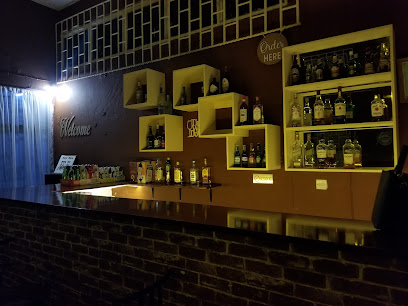
The Hotspot Pub & Grill
Experience Ndola's nightlife at The Hotspot Pub & Grill, a lively bar offering great food, drinks, and a vibrant social atmosphere.
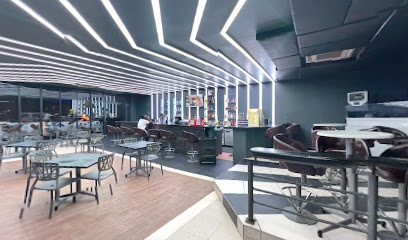
The Tipsy crow bar
Experience the vibrant nightlife of Ndola at The Tipsy Crow Bar, where great drinks and a friendly atmosphere await.

Local Phrases
-
- HelloShani
[sha-nee] - GoodbyeBwino bwino
[bwee-no bwee-no] - YesEe
[eh] - NoAwe
[ah-way] - Please/You're welcomeTafadhali
[ta-fa-da-lee] - Thank youZikomo
[zee-ko-mo] - Excuse me/SorryPeza chifukwa
[pe-za chee-foo-kwa] - How are you?Muli bwanji?
[moo-lee bwan-jee] - Fine. And you?Zabwino. Kaya inu?
[za-bwee-no. ka-ya ee-noo] - Do you speak English?Mukufuna kumva chizungu?
[moo-koo-foo-na koom-va chee-zoon-goo] - I don't understandSindingathe kudziwa
[sin-din-ga-thay kood-zee-wa]
- HelloShani
-
- I'd like to see the menu, pleaseNdimafuna kuyang'ana menu, chonde
[ndee-ma-foo-na koo-yang-a-na me-nu, chon-day] - I don't eat meatSindichitola nyama
[sin-di-chee-to-la nya-ma] - Cheers!Timange!
[tee-man-gay] - I would like to pay, pleaseNdimafuna kupanga misonkho, chonde
[ndee-ma-foo-na koo-pan-ga mee-son-kho, chon-day]
- I'd like to see the menu, pleaseNdimafuna kuyang'ana menu, chonde
-
- Help!Chitani chitukuko!
[chee-ta-nee chee-too-koo-ko] - Go away!Pita kuwawa!
[pee-ta koo-wa-wa] - Call the Police!Pangani mafunso!
[pan-ga-nee ma-foon-so] - Call a doctor!Pangani wachuma!
[pan-ga-nee wa-choo-ma] - I'm lostNdatshilidwa
[nda-chee-lee-dwa] - I'm illNdili wabwino
[ndee-lee wa-bwee-no]
- Help!Chitani chitukuko!
-
- I'd like to buy...Ndimafuna kugula...
[ndee-ma-foo-na koo-goo-la] - I'm just lookingNdili kumva
[ndee-lee koom-va] - How much is it?Chifukwa chiyani?
[chee-foo-kwa chee-ya-nee] - That's too expensiveChachilendo kwambiri
[cha-chee-len-do kwa-mbir-ee] - Can you lower the price?Mukhoza kuyamika chinsinsi?
[moo-kho-za koo-ya-mee-ka cheen-seen-see]
- I'd like to buy...Ndimafuna kugula...
-
- What time is it?Nthawi yake ndi yotani?
[ntha-wee ya-kay ndee yo-ta-nee] - It's one o'clockNdi nthawi yamodzi
[ndi ntha-wee ya-mo-dzee] - Half past (10)Moyambirira (kumi)
[mo-yam-bee-ree-ra (koo-mee)] - MorningUsiku
[oo-see-koo] - AfternoonMawa
[ma-wa] - EveningChaka
[cha-ka] - YesterdayNtchito
[nchee-to] - TodayLero
[le-ro] - TomorrowMawa
[ma-wa] - 1Mosi
[mo-see] - 2Ziri
[zee-ree] - 3Tatu
[ta-too] - 4Nai
[nye] - 5Zana
[za-na] - 6Zidai
[zee-dye] - 7Zisere
[zee-se-re] - 8Zitatu
[zee-ta-too] - 9Zikumi
[zee-koo-mee] - 10Zigulu
[zee-goo-loo]
- What time is it?Nthawi yake ndi yotani?
-
- Where's a/the...?Muli ku...
[moo-lee koo] - What's the address?Adzandikhuza kunsanja?
[ad-za-ndi-khoo-za koon-san-ja] - Can you show me (on the map)?Mukhoza kundikonzera (pa mapha)?
[moo-kho-za kun-di-kon-ze-ra pa ma-pha] - When's the next (bus)?Muli nthawi yotsitsa (bus)?
[moo-lee ntha-wee yo-tsi-tsa bus] - A ticket (to ....)Chikalata (kwenda ....)
[chee-ka-la-ta kwen-da]
- Where's a/the...?Muli ku...
History of Ndola
-
Long before European explorers set foot in Zambia, the area that is now Ndola was inhabited by indigenous groups, primarily the Lamba people. They lived in harmony with the land, practicing subsistence farming and engaging in local trade networks. Ndola, with its fertile soil and strategic location, was a significant settlement area for these communities.
-
Ndola was formally established in 1904 by British settlers as part of the British South Africa Company’s efforts to exploit the region’s resources. Located near the Congo border, Ndola quickly became an important administrative and commercial hub due to its strategic position on the railway line connecting the interior to the port of Beira in Mozambique.
-
The discovery of copper deposits in the early 20th century transformed Ndola and the surrounding region. The Copperbelt, as it came to be known, attracted investment and labor from across the globe. Ndola emerged as a critical center for copper processing and trade, hosting several key facilities and becoming a bustling, cosmopolitan town.
-
During World War II, Ndola's industrial capacity expanded significantly. The town supplied essential materials and goods, supporting the Allied war effort. This period saw the construction of numerous factories and infrastructure projects, laying the foundation for Ndola's post-war economic growth.
-
Zambia gained independence from British colonial rule in 1964, and Ndola played a crucial role in the new nation's economy. As one of Zambia's largest cities, Ndola became a focal point for industrial policies and economic strategies aimed at reducing reliance on copper and diversifying the economy.
-
In 1961, Ndola became internationally known due to the tragic plane crash that killed Dag Hammarskjöld, the then-Secretary-General of the United Nations. The crash site, located just outside the city, has since been turned into a memorial and is a poignant reminder of the city's place in global history.
-
Today, Ndola is a vibrant city that blends its rich history with modern development. The city boasts numerous cultural landmarks, including museums, art galleries, and theaters. Ndola's diverse population and historical layers make it a fascinating destination for those interested in exploring Zambia's cultural and historical tapestry.
Ndola Essentials
-
Ndola is located in the Copperbelt Province of Zambia. The nearest international airport is Simon Mwansa Kapwepwe International Airport, which serves as a gateway to the city. Direct flights are available from several African cities, including Johannesburg and Addis Ababa. Alternatively, you can fly into Kenneth Kaunda International Airport in Lusaka and then take a domestic flight to Ndola. For those preferring land travel, buses and private taxis connect Ndola to other major cities in Zambia.
-
Ndola has several transportation options to help you get around the city. Taxis are widely available and are a convenient way to navigate the city. Public minibuses are the most common form of public transport and provide a cost-effective way to travel, though they can be crowded. Car rentals are also available for those who prefer driving. For short distances, walking is a viable option, as many attractions are within close proximity.
-
The official currency in Zambia is the Zambian Kwacha (ZMW). Credit cards are accepted in major hotels, restaurants, and some shops, but it is advisable to carry cash, especially when visiting local markets and smaller establishments. ATMs are available throughout Ndola, but it is wise to withdraw sufficient cash to cover your expenses. Currency exchange services are also available at the airport and in various parts of the city.
-
Ndola is generally a safe destination for tourists, but it is important to take standard precautions. Avoid walking alone at night, especially in poorly lit or unfamiliar areas. Petty crime, such as pickpocketing, can occur in crowded places, so keep an eye on your belongings. Areas such as Masala and Chifubu have higher crime rates and should be avoided, particularly after dark. Always use reputable taxi services and avoid accepting rides from strangers.
-
In case of emergency, dial 991 for police assistance, 993 for medical emergencies, and 999 for fire services. Ndola Central Hospital is the main medical facility in the city and provides a range of healthcare services. It is recommended to have travel insurance that covers medical emergencies. For minor health issues, pharmacies are available in the city where you can purchase over-the-counter medications.
-
Fashion: Do dress modestly, especially when visiting religious or cultural sites. Avoid wearing overly revealing clothing. Religion: Do be respectful of local customs and traditions. Remove your shoes when entering places of worship. Public Transport: Do be courteous and offer your seat to elderly passengers. Don't eat or drink on public transport. Greetings: Do greet people with a handshake. A warm smile and friendly demeanor are always appreciated. Eating & Drinking: Do try local dishes and graciously accept invitations to dine with locals. Don't refuse hospitality, as it may be considered impolite.
-
To experience Ndola like a local, visit the vibrant markets such as the Masala Market, where you can buy fresh produce and local crafts. Engage with locals, as they are often friendly and willing to share insights about their culture and history. Don’t miss visiting the Dag Hammarskjöld Memorial Site, which commemorates the former UN Secretary-General. For a unique experience, explore the Ndola Boating Club, situated on the shores of the Kafubu River, offering a relaxing atmosphere and beautiful views.
Trending Landmark in Ndola
-
Jacaranda Mall
-
Protea Hotel Ndola
-
Nando's Ndola
-
The Urban Hotel Ndola
-
Bo'Jangles Pub Grill & Pizzeria
-
Copper Canyon Spur
-
starscape Hotel & restaurant
-
Leeja Palace Restaurant & Bar
-
Zanji Lodge
-
Angelina's Bistro, Bar & Pizzeria
-
Njele Country Park
-
Spree Guest House
-
Mint Café Ndola
-
Mukuba Hotel
-
Nawab's Kitchen
Nearby Cities to Ndola
-
Things To Do in Kitwe
-
Things To Do in Kabwe
-
Things To Do in Solwezi
-
Things To Do in Lusaka
-
Things To Do in Kariba
-
Things To Do in Kasama
-
Things To Do in Chipata
-
Things To Do in Chinhoyi
-
Things To Do in Lilongwe
-
Things To Do in Harare
-
Things To Do in Mzuzu
-
Things To Do in Livingstone
-
Things To Do in Victoria Falls
-
Things To Do in Nkhata Bay
-
Things To Do in Salima









